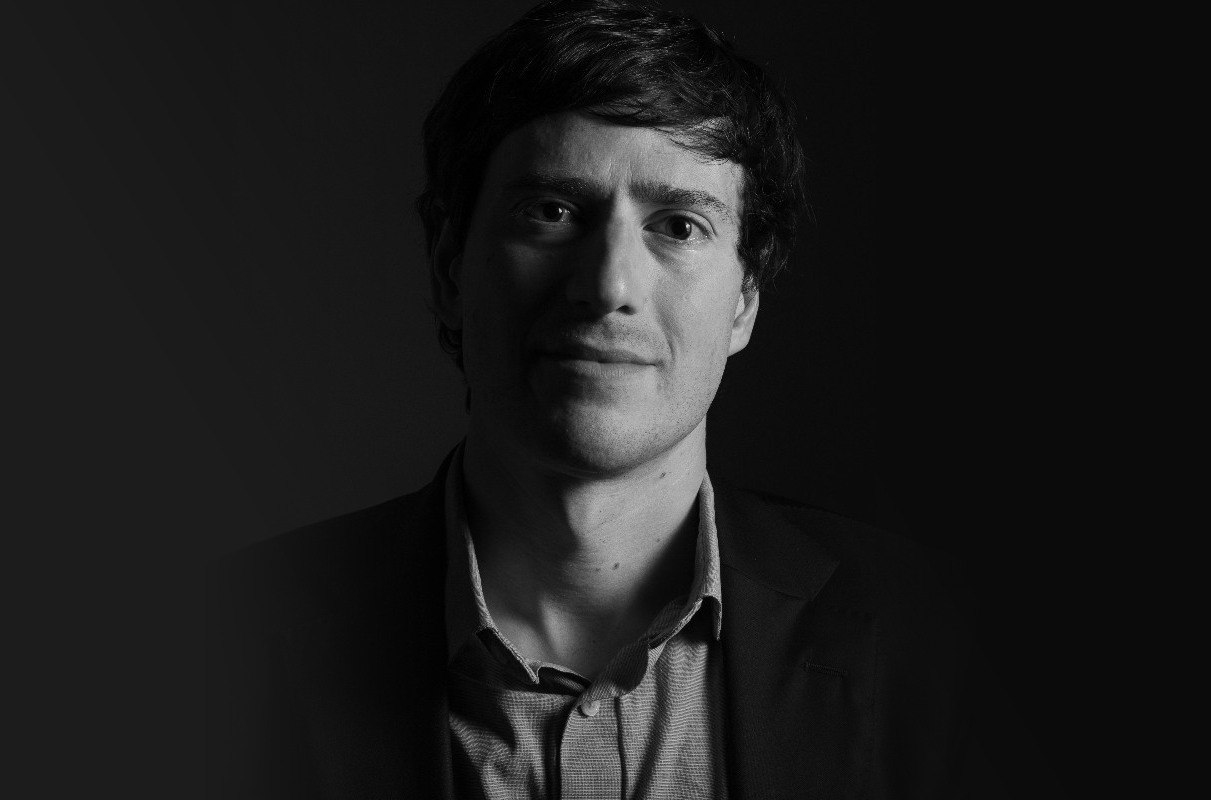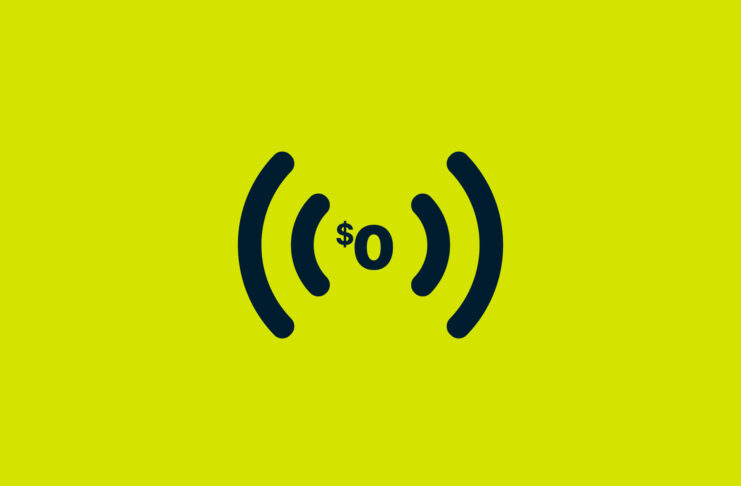
Alex Gladstein is chief strategy officer at the Human Rights Foundation (HRF), a non-profit organization that works to promote and protect human rights internationally. The group has a specific focus on countries that are largely closed off to the outside world.
We speak with Gladstein about the HRF’s Flash Drives for Freedom initiative, which smuggles USB sticks (a.k.a. flash drives) into closed-off North Korea loaded with media showing the outside world.
[Don’t miss our interviews. Subscribe to the ExpressVPN Blog Newsletter.]
How did Flash Drives for Freedom begin?
The Human Rights Foundation started working with North Korean defectors in 2009 by giving them a platform to speak out about their struggle at an event we run called the Oslo Freedom Forum. In the following years, we continued to support North Korean defectors and refugees, and years later we traveled to South Korea on their invitation to visit their offices and learn more about their operations.
What we found was that even though they had very little resources and financing, they were very passionate about their work. We decided to get involved with a variety of programs, culminating in the spring of 2016 with Flash Drives for Freedom, which we launched that year at South by Southwest. So for five years, we’ve been collecting flash drives, USB keys, and SD cards from people around the world, and we have been giving them to people inside North Korea who don’t have access to outside information or whose access is extremely limited.
How has access to information evolved in North Korea?
There have been different eras, different shifts over time, but there’s always been a demand for outside information. In the late ’90s and early 2000s, the idea of getting information into North Korea was harder—technologically speaking. For example, when the medium is a VHS tape it’s just clunky and limiting. Books and radio messages were also common in this era. With the introduction of the DVD, something more portable became the norm; but the real game changer was the advent of the USB key around the mid 2000s to 2010.
And now, North Korea is seeing a rise not just in the use of USB keys, but also smartphones and tablets amongst youth. Compared to 20 years ago, the younger generation has a wider understanding of what’s happening outside of North Korean borders.
Eventually you want to get to the real meat, which is to get people to question why they’re in their current situation and what’s beyond their borders.
Who selects what media gets loaded onto USBs? And what are some of the preferred inclusions?
We work with our North Korean partners to make those decisions. They usually do focus groups with people who’ve recently fled North Korea to determine what they think would be the most effective.
At the base level, we include entertainment content. This covers things like South Korean dramas, movies, and K-pop music. Then one level up, we include interviews with defectors and refugees, and general news from the outside world. And at the top of that pyramid is human rights or politically revolutionary content like documentaries about the fall of the Berlin Wall or information about the Kim regime.
The higher up you go up the information ladder, the riskier it gets. It’s like going down the rabbit hole of any information system: Eventually you want to get to the real meat, which is to get people to question why they’re in their current situation and what’s beyond their borders. So when people know enough about their situation, they’ll be equipped with enough information to make an informed decision and realize it’s worth risking death to leave North Korea—and thousands of people decide to make that journey.
What happens if a citizen is caught watching outside media?
There’s a lot of bribery in North Korea. A lot of times you get caught, you bribe your way out. Sometimes people are made an example of, and people have certainly been sent to prison camps, so they are definitely taking a massive risk.
But generally speaking, access to outside information is just very commonplace. Not only is it common that people watch forbidden media, but they’ll also go to the border of China and try to speak to their families on someone’s cell phone. Or they’ll go to receive remittance from a border guard that their defected family members have sent. A lot of clandestine interactions seem to happen this way.
Do you know many defectors who have chosen to leave the DPRK directly because of Flash Drives for Freedom?
It’s hard for us to make that determination because our stuff is not branded as “Flash Drives for Freedom.” What I can say is that our program has done a lot in the last five years, and if you speak to any North Korean defectors, they will tell you that one of the primary reasons for leaving North Korea was outside information.
Thae Yong-Ho, one of the highest-ranking diplomats ever to defect from North Korea, testified in Congress that the Kim regime’s Achilles heel was outside information. So we feel very confident that we’ve made a big impact. By our estimation, we’ve reached around a million people.
What is the best way to combat propaganda?
Truth—not with new propaganda but with other perspectives. North Koreans have been so brainwashed that it’s not easy for them to accept the truth. I’ve talked to many North Korean defectors who’ve said that they didn’t want to believe it at first, or they didn’t believe that it was true.
When you’re brought up in an environment when all you know is the Kim regime, that’s your god—and getting rid of your god is hard. But many have made the decision. Kim Il Sung commanded an immense level of respect, and he had crafted this warrior persona for himself so much so that when he died in 1994, the tears shed by North Korean citizens were real. With Kim Jong Il, the reverence is less intense, and Kim Jong Un a lot less so—the intensity definitely peters out the further the figurehead is removed from the founder. So I definitely think that the best way to fight the propaganda is just to keep sending outside information into North Korea.
More personal technology does not necessarily lead to more freedom, and it can really depend on the kinds of technology we use.
How do you see censorship and access to information changing around the world over the next decade?
It’s kind of asymmetric because the tools that allow us to connect are expanding rapidly. Phones continue to become more powerful, with cameras on them and things like that. At the same time, you have an increase in power of centralized systems that data moves through. It’s quite clear that it’s not just cut and dry.
More personal technology does not necessarily lead to more freedom, and it can really depend on the kinds of technology we use. There’s certain kinds of technology that I view pro-freedom, whether that be the Tor network, or Signal, or Bitcoin. But then again, if you’re just using these corporately-controlled, government-controlled apps, and you’re trading off your privacy and freedom for comfort and convenience, I don’t know if you’re gonna like the outcome over time. So citizens have to be careful about how they interact with the world around them.
North Koreans obviously don’t have a choice—that’s a problem they would love to have.
Technological censorship is also an issue. Today a lot of platforms are easily censored, whether by governments or social pressure, which makes it very easy to deplatform people. Thankfully, there’s technology being developed that’s censorship-resistant. I personally work a lot in the Bitcoin space, that’s what’s happening with the Lightning Network. People are developing social media that can’t be stopped, so that’s going to be very interesting to track. But I definitely think that technology and incentives will develop to fight censorship effectively.
Are there any countries you’d like to expand the flash drive movement into?
We actually started in Cuba. This whole program started with getting outside information and DVDs into the Cuban underground library movement in the mid 2000s. The Cubans actually met the North Koreans at our event in 2009, and they introduced them to what we were working on at the Human Rights Foundation.
Eritrea is a big one—it’s often called the North Korea of Africa. It’s a very cut-off dictatorship where people don’t really have outside information. Pakistan, Tajikistan, and Syria are too, as well as some other highly censored countries across Central Asia. There are many countries that are cut off technologically, financially, or informationally from the rest of the world that could benefit from some outside help.
What else can be done to address the digital divide?
It all starts with understanding. If you don’t understand the plight of the North Koreans, you’re not going to be interested in helping. If you don’t understand that you can make a difference, then you’re not interested in helping. That’s why we run our campaigns—to pique the interest of the general public so that they can understand the difference that they can make.
No matter how small, something can be done. When North Korea eventually collapses, people are going to say they wish they had done more. Well, now it’s your opportunity to do more.
Read more: Q&A with surveillance critic Albert Fox Cahn























Comments
I feel like this could’ve been better and interesting to as a podcast.
ExpressVPN should heavily consider creating a Security Talk show or interview podcast we can all listen to
Authoritarian regimes like North Korea, China, Saudi Arabia and Belarus among others make it very difficult for netizens to get authentic fact-checked information – so any system that breaks this iron fist is welcome. There is real danger for those involved in providing this information and for those spreading it.
However, we shouldn’t feel too smug in some Western countries. The quantity of information may present a variety of viewpoints, but there is also a greater chance of misinformation and deliberate falsehoods. You can try a simple experiment on YouTube for example and watch how you get blocked and/or banned by an algorithm. Try presenting fact-checked information using Snopes, MediaBias, Full Fact etc to counteract blatant lies on highly-contentious issues and watch how the posts will be mob reported. The algorithm kicks-in and that’s it. It’s another form of cancel culture.
China has a Social Credit system. Challenge the state’s viewpoint and get minus points. Your score will then impact on everyday things like buying travel tickets – so people self-censor. China also sends back North Koreans caught when trying to defect and their extended family is punished.
It’s been said that “Information is power” but that is only true if the information leads to real changes. The North Korean regime is backed by China as a bulwark against having American allies at its border so don’t expect many changes any time soon.
It is a “GOD” given “Right” to speak and,..to speak the “Truth” is a BLESSING. there are no-blessing unless they are sent from above. All else are dis-info(s) that deems people to be “stupid” and/or incompetent in receiving and/or understanding what is Truth. Most are indifferent and lost somewhere in the shuffle. To our Country’s detriment “we are in a stupor
Thank you, I think in the coming years we are going to rely on people like yourself who are brave and very bright. Thank you for reducing the silence.
Well done thank you for your passion
Thanx for all the info!